According to a recent study by Sistrix, over 25% of people click the first Google organic search result. In fact, when taking a closer look at the chart below, we find that more than 55% of users click on the top 3 organic search results!
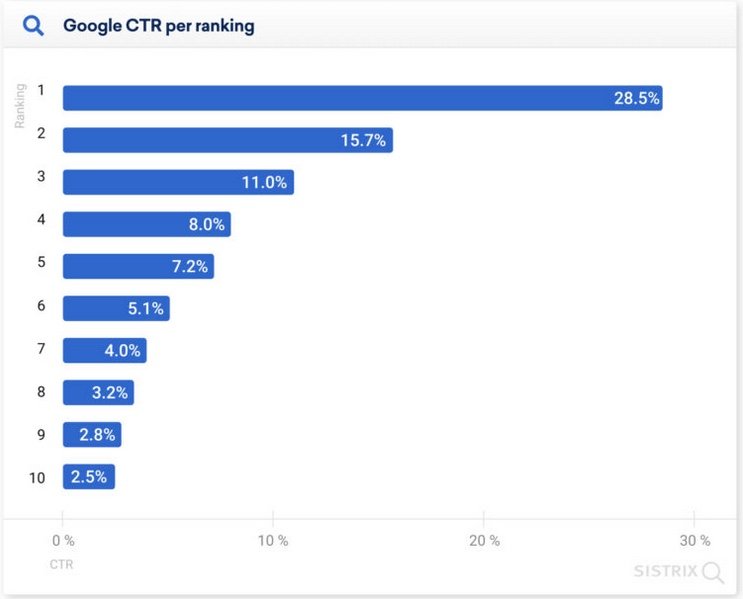
Source: Sistrix study 2020, as per Search Engine Journal.
Thus, Search Engine Optimization (SEO) is more than ever pertinent for travel and hospitality brands seeking to be found by users searching online.
In fact, recent studies showed that:
- 65% of leisure travelers begin researching online before deciding where to travel to;
- 72% of travelers research destinations online;
- 66% of travelers research their holiday primarily online.
Yet, you may wonder how your hotel or restaurant could rank higher in search results. Here are a few things to consider.
1. Identify Keywords
Do you have any idea what words are actually entered in Google Search when users make online queries, leading them to your website? You can actually get a glimpse of that information by using Google Search Console.
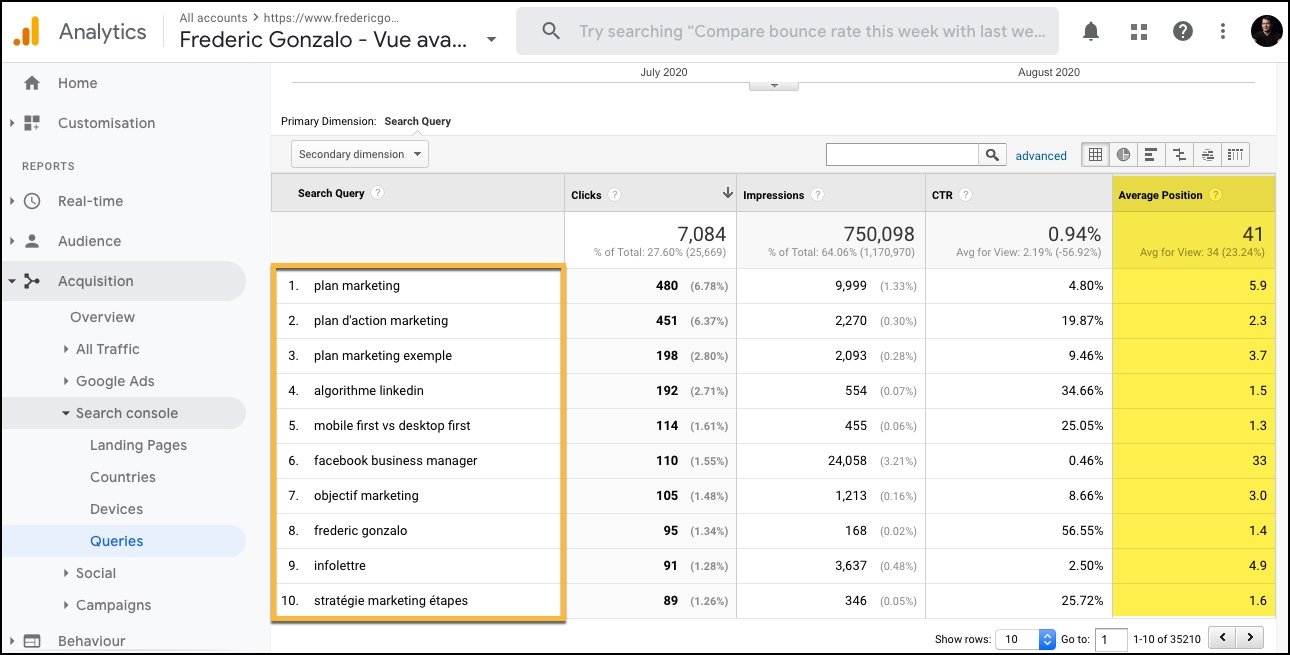
Google Search Console Example
You can then link Google Search Console account to your Google Analytics dashboard and see what queries generated traffic to your site. You can also see how well you perform – or rank – for each keywords.
In the example above, taken from my website recently, I see queries such as “marketing plan”, “facebook business manager” or “newsletters”. I could update articles on these topics, write new ones, launch a new Google Ads campaign, etc.
Knowing which keywords are being entered by users can shed some light on potential words to use in ongoing and future AdWords campaign. It can also help you align for copy on your website, in particular when completing page titles, meta descriptions and image descriptions.
2. Increase Page Speed
While there are many factors that affect positively or negatively how Google perceives the performance of your website, speed has become an increasingly important variable. A slow site is doomed for less traffic, as users have become impatient and want their information fast or they will go elsewhere.
Wondering how fast your site is? Go to PageSpeed Insights to find out.
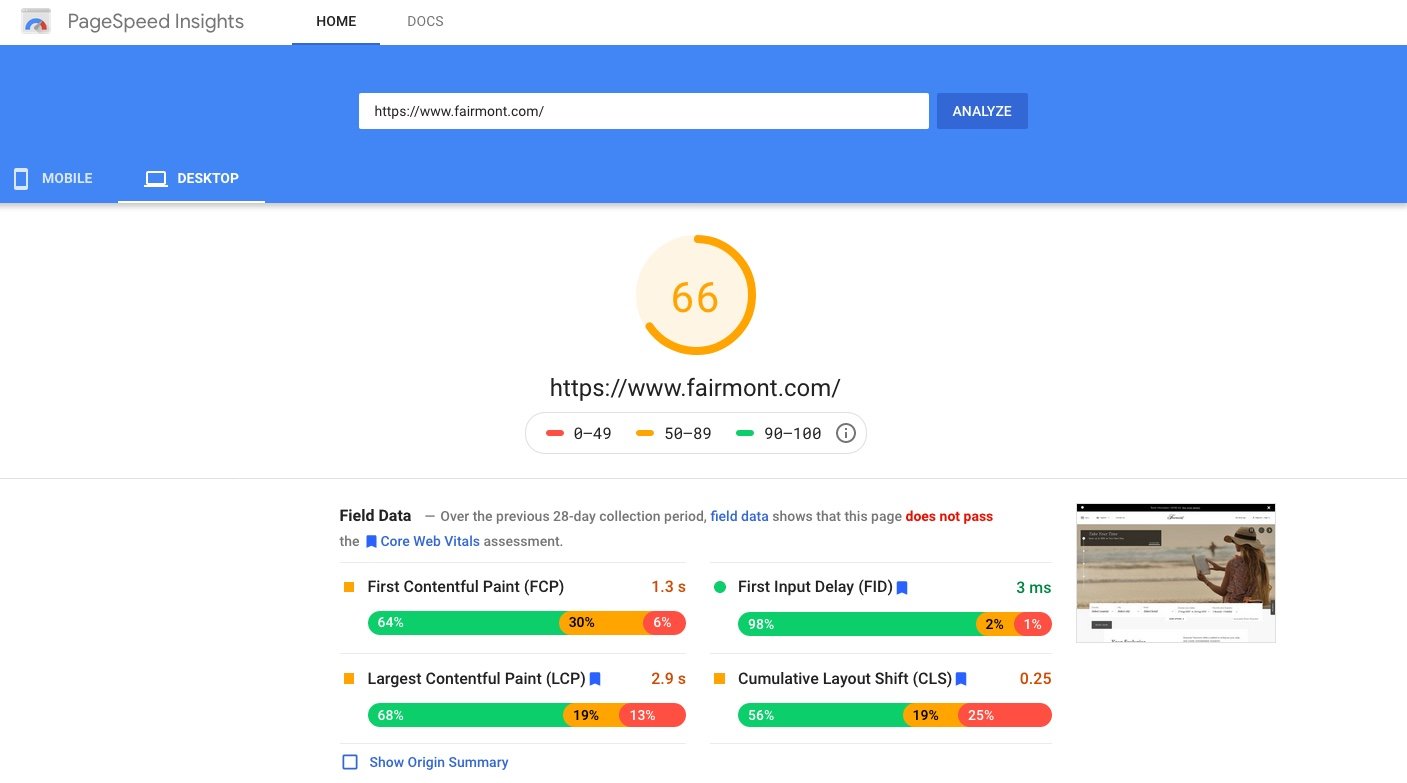
PageSpeed Insights example for Fairmont Hotels
As you can see in the example above for Fairmont Hotels, Google gives it 66/100 for desktop performance, which is good. But it got well below the passing grade for its mobile performance.
PageSpeed Insights will give you cues as to how to improve your page speed performance and solutions to implement quickly.
3. Adapt For Voice Search
I have told you before how voice search will impact travel marketing, and we are seeing this playing out. Nearly one out of every two mobile search is now made through voice, so how should brands react accordingly?
If you are wondering how to optimize your website for voice search, here are 4 aspects to consider:
- Make sure to have a mobile-friendly site
- Answer questions – or better yet, have a dedicated FAQ page or section
- Optimize for position zero
- Manage your Google My Business listing
All of this is particularly true for travel and hospitality brands, as travelers often seek out places to eat or things to do while on the move. Having a mobile-optimized strategy and geo-localized strategy can help ensuring your products and services are easily found by potential customers.
4. Manage Google My Business
In these times of pandemic and uncertainties, is your business open as usual? Did you change your opening hours or perhaps are offering different kind of products, takeout orders or delivery?
Google will reward sites that show updated, fresh information on their site. But it will obviously link back this information to its Google My Business equivalent, assuming relevant details are updated and that reviews are also being managed.
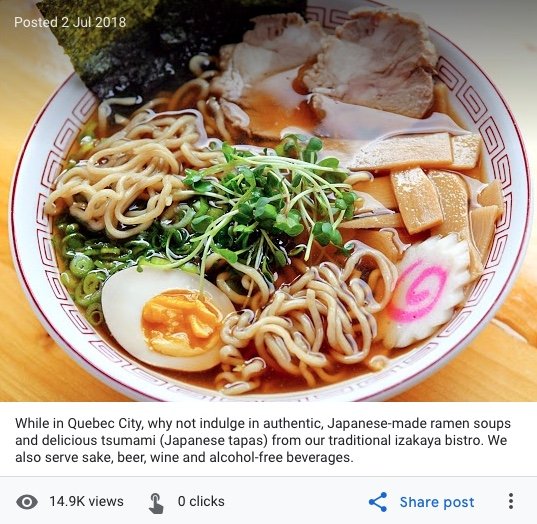
Posting example on Google My Business
Make sure to use the posting feature to get more exposure on Google for your site and generate traffic – clicks or calls – to your business.
5. Optimize For Mobile
How much of your website traffic comes from mobile devices and tablets versus desktop? More importantly, which device yield the best conversion rates and total revenues? It’s important to take a look at your Google Analytics data to better understand what works and what doesn’t.
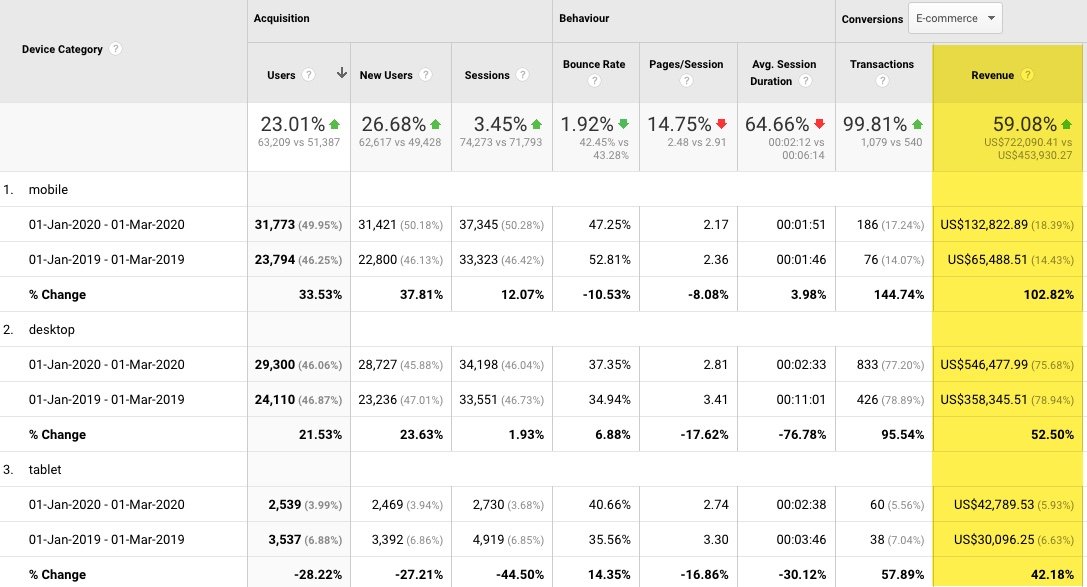
Example of Google Analytics data for an independent hotel in the US
As you can see in the example above, comparing traffic of this hotel website in Q1 2020 vs Q1 2019 shows an overall increase of 23%. Desktop traffic was pretty much on par, tablet traffic dropped by 28% while mobile saw a 34% increase.
More importantly, you can see how mobile revenue increased two fold compared to desktop. And even tablet revenues increased almost as much as desktop, despite much less traffic, yielding higher conversion rates.
Thus, in this context, your brand will want to optimize the mobile experience as much as possible, including:
- Lower resolution, next generation images
- No video, or heavy media, that can slower page loading performance
- Mobile-friendly buttons
- Sticky menu with clear call-to-action
- Click-to-call feature or reservations made easy with one click
- Square images or visuals that are optimal for smaller devices
BONUS: Define Images
It is said that 85% of worldwide searches are made on Google. But did you know that 60% of these searches were text queries while 25% were image searches?
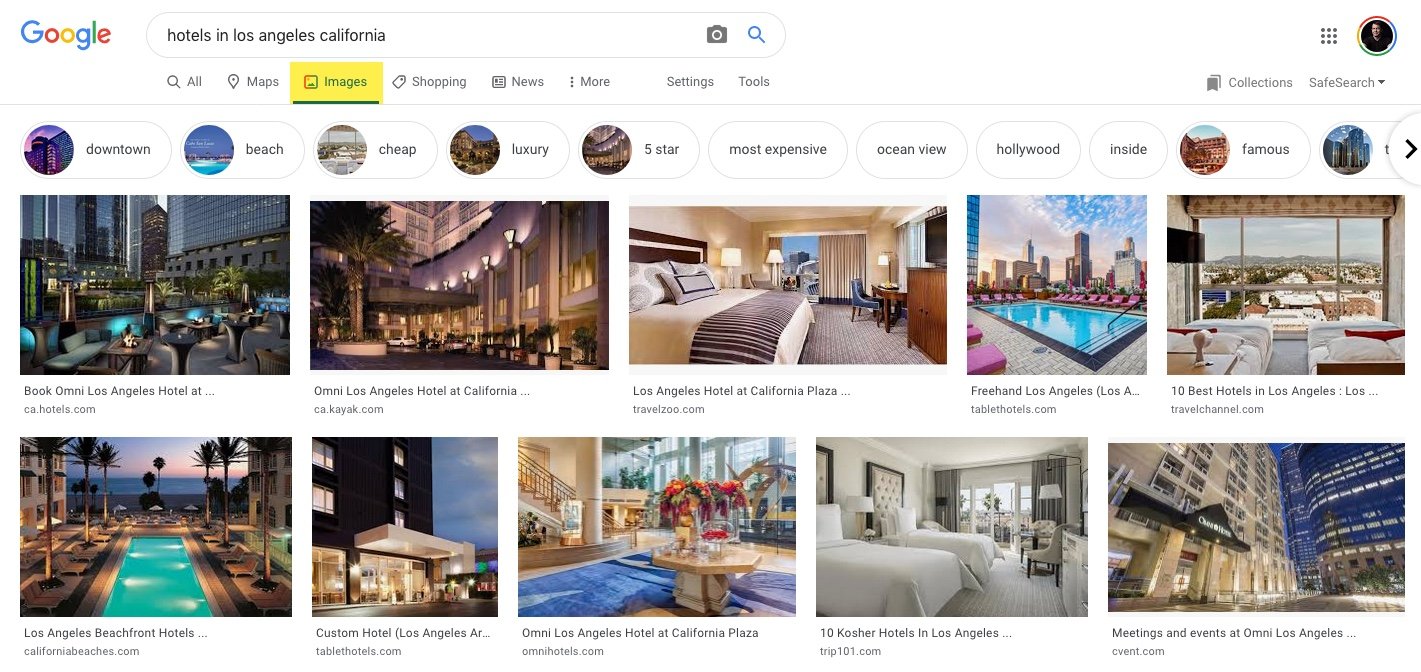
Example of hotel search on Google image
Thus, it’s extremely important to make sure images shown on your site, blog and even social platforms are properly named and defined. Simply uploading a file as “IMG1432.jpeg” to your site on WordPress won’t help you get noticed by search engines.
Just like keywords are essential, defining images will help get you noticed in online queries, assuming you properly describe them on your site. Make sure to properly fill:
- Image title
- Description
- Alternate text
- Caption
All these elements ensure images on your site can be found and shared across social media, for example. As you can see in the example above, OTA and meta-search sites such as Trivago and Kayak do a good job with images leading to traffic on their site. It’s up to you to do likewise for your property, products and services!
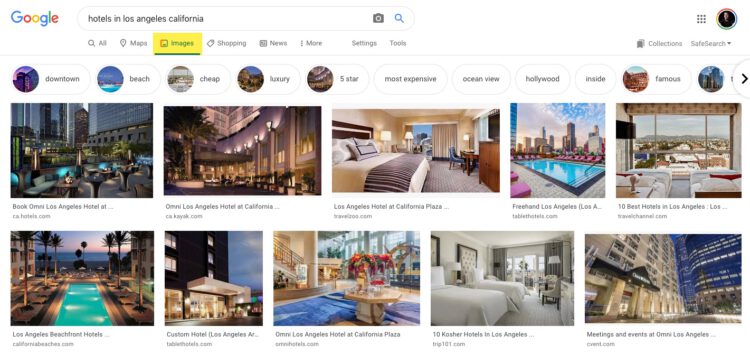
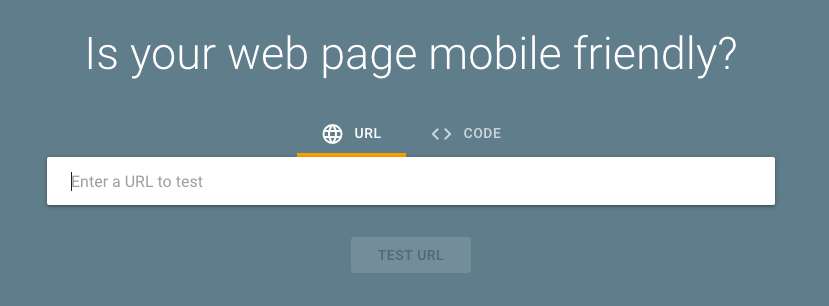









If you have a travel brand or provide travel services, then I think you should read the article titled 5 SEO TIPS FOR TRAVEL BRANDS as it provides some great information about SEO.